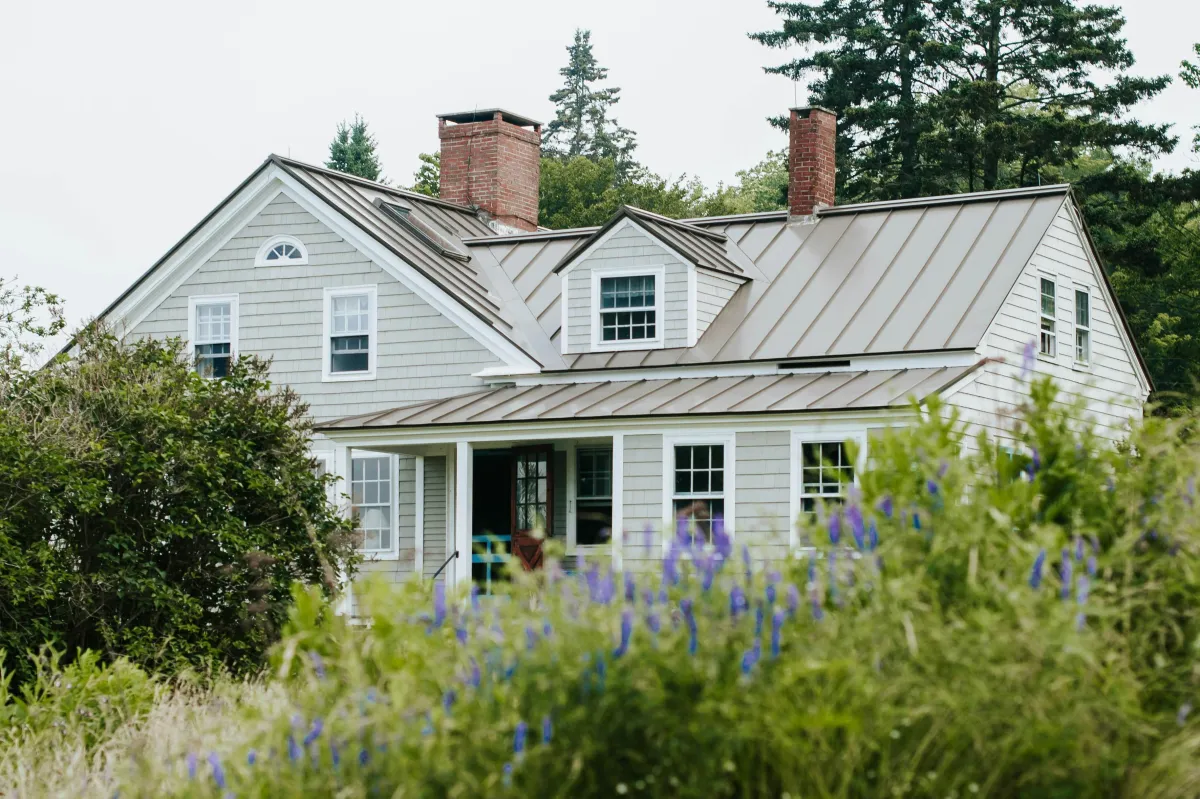
Getting a Cost Breakdown Before Building Your Custom Home
Building a custom home often feels overwhelming, especially when it comes to understanding costs. A detailed cost breakdown is vital to avoid surprises later on. This article will cover why knowing the factors that influence construction costs matters, the steps to request a comprehensive cost breakdown, and how to effectively review estimates. By following this guide, readers will gain clarity on their budget and make informed decisions that align with their goals. This approach helps tackle the common worry of spiraling expenses related to construction loans and interest rates, ensuring a smoother building experience with a trusted custom builder.
Key Takeaways
Understanding cost categories aids in creating a realistic budget for custom home-building
Collaborating with professionals ensures accurate estimates aligned with homeowner goals
Identifying potential savings can help maximize budget efficiency in a custom home project
Discussing budget flexibility with contractors allows for adjustments without compromising the home’s vision
Seeking references verifies contractor reliability and helps avoid unexpected costs during construction
Understand the Importance of a Detailed Cost Breakdown Before Custom Home Construction

Identifying key cost categories in custom home building is essential for budgeting accurately. A comprehensive cost breakdown helps homeowners recognize the different expenses involved, from contractor fees to subcontractor charges. It also addresses common misconceptions about construction costs, ensuring the home is viewed as a valuable asset rather than a source of debt. Understanding these aspects can lead to better financial decisions throughout the building process.
Identify Key Cost Categories in Custom Home Building
Understanding key cost categories in custom home building is crucial for an accurate budget. Homeowners should account for expenses related to the contractor, including labor and materials, as well as fees for electricians and other subcontractors. Additionally, considering potential mortgage payments and interest rates will help in managing long-term financial decisions while constructing a spec home that aligns with their vision.
Recognize the Benefits of Obtaining a Comprehensive Cost Breakdown
Obtaining a comprehensive cost breakdown before starting a custom home build brings several advantages. This detailed overview allows homeowners to understand how much is allocated for materials like wood and labor fees, helping them make informed decisions throughout the process. For example, knowing the costs associated with elements such as laundry room design or other interior design choices can prevent budget overruns and ensure that every aspect aligns with the homeowner's vision and financial capabilities.
Analyze Common Misconceptions About Construction Costs
Many homeowners hold misconceptions about construction costs, particularly regarding the percentage of the budget that goes toward various elements. Some might assume that the general contractor’s fee covers everything, including materials and labor, while this is often only a portion of the total expenses. Understanding that additional costs, such as permits and inventory, can affect the overall budget can help in effectively planning for a custom home project.
Recognizing the accurate distribution of costs in custom home construction helps in budgeting.
Understanding the fee structure of a general contractor is vital for financial planning.
Addressing misconceptions can prevent unexpected expenses that strain budgets.
Determine What Factors Influence Construction Costs

Land costs significantly impact the overall budget for a custom home build, making it essential to work with a knowledgeable real estate agent. Material choices, like granite countertops or roofing options, play a critical role in determining expenses. Labor costs vary depending on the skilled workers needed. Lastly, permits and fees can add extra financial considerations that should not be overlooked.
Examine Land Costs and Their Impact on Overall Budget
Land costs can greatly influence the overall budget for a custom home build, making careful selection essential. Prospective homeowners should consider the down payment required, as higher land prices will lead to larger initial expenses. Understanding the relationship between land values, local income, and property taxes can help in creating a realistic budget that aligns with financial capabilities.
Assess Material Choices and Their Cost Implications
Material choices significantly affect the overall costs of a custom home build. Homeowners should carefully consider options like flooring, countertops, and roofing materials, as these decisions can impact not only the initial budget but also long-term maintenance expenses. For instance, selecting energy-efficient windows may have a higher upfront cost, but they can lead to savings on energy bills over time, making them a smart investment in the overall financial plan.
Investigate Labor Costs and Their Variables
Labor costs can vary widely depending on the type of skilled workers required for a custom home build. Homeowners need to consider not just the wages of individual workers, but also factors like their experience level, the complexity of tasks, and regional labor rates. For instance, hiring specialized contractors for plumbing or electrical work may increase overall expenses, so understanding these components helps in planning an accurate budget.
Learn About Permits and Fees That Affect Total Expenses
Permits and fees are essential components of the total expenses in a custom home build. Homeowners should anticipate costs related to building permits, inspections, and impact fees, which can vary based on the location and type of construction. Budgeting for these expenses in advance ensures that homeowners are prepared for the financial responsibilities of their project:
Steps to Request a Detailed Cost Breakdown

To obtain a comprehensive cost breakdown before starting a custom home build, homeowners should focus on three key areas. First, collaborating with architects and designers helps generate accurate estimates that align with design goals. Next, engaging with contractors allows for acquiring detailed proposals tailored to specific needs. Lastly, utilizing cost estimating software tools provides valuable insights into potential expenses, streamlining the budgeting process.
Collaborate With Architects and Designers for Accurate Estimates
Collaborating with architects and designers is key for obtaining accurate estimates before starting a custom home build. These professionals help translate design visions into detailed specifications, allowing homeowners to understand the costs associated with different materials and features. By engaging closely with these experts, homeowners can ensure that their budget aligns with their desired home design, reducing the risk of unexpected expenses later in the process.
Engage With Contractors to Acquire Proposals
Engaging with contractors is a crucial step for homeowners to obtain accurate proposals for their custom home build. This interaction allows homeowners to communicate their specific needs and preferences, ensuring that each proposal reflects their vision and budget. By comparing multiple proposals, homeowners can identify the best financial and service options available, minimizing the risk of unexpected costs during the construction process.
Utilize Cost Estimating Software Tools
Utilizing cost estimating software tools can significantly simplify the process of budgeting for a custom home build. These tools allow homeowners to input various project parameters, such as design features and material choices, to generate a clear cost breakdown. With the ability to view real-time price estimates, homeowners can make informed decisions that align with their financial expectations, minimizing surprises as the construction progresses.
Prepare Questions to Ask Contractors About Costs

When discussing costs with contractors, it's vital to inquire about key topics. Homeowners should ask whether they offer turnkey or cost-plus agreements, as this affects overall pricing. Additionally, clarifying included and excluded services in proposals can prevent misunderstandings. Understanding the timeline and its effect on pricing is also essential for accurate budgeting throughout the custom home building process.
Inquire About Turnkey vs. Cost-Plus Agreements
When discussing costs with contractors, homeowners should inquire about whether they offer turnkey or cost-plus agreements. A turnkey agreement usually includes a fixed price for the entire project, providing clarity and predictability in budgeting. In contrast, a cost-plus agreement charges for labor and materials plus a fee, which can lead to variable costs depending on project changes. Understanding these options helps homeowners make informed decisions that suit their financial plans and expectations for the custom home build.
Ask About Included and Excluded Services in Proposals
Homeowners should carefully ask contractors about what services are included and excluded in the proposals they receive. Knowing these details is essential, as it clarifies what to expect regarding labor, materials, and any additional costs that may arise during the project. This understanding helps in setting realistic budgets and avoiding unexpected financial surprises as the building process unfolds:
Request a detailed list of included services.
Clarify any costs that may not be part of the initial quote.
Discuss how changes in design may affect the overall price.
Clarify Timeline and How It Affects Pricing
Understanding the timeline for a custom home build is crucial, as it directly impacts overall costs. Homeowners should discuss project duration with contractors, as longer timelines can increase labor and material expenses. Unforeseen delays may extend resource usage, raising costs further, while seasonal fluctuations in material pricing can also affect the budget. Being aware of these factors allows homeowners to plan more accurately and prepare for potential financial impacts related to scheduling.
What to Do if Total Costs Exceed Your Budget

If total costs exceed the budget, homeowners should prioritize desired features and consider making adjustments accordingly. Exploring financing options available for custom builds can provide additional support. Additionally, evaluating alternative material choices may lead to cost savings. Flexibility in the budget with the contractor can also facilitate necessary changes while ensuring the vision for the home is still achievable.
Prioritize Desired Features and Make Adjustments
When total costs exceed the budget for a custom home build, homeowners should prioritize key features to make informed adjustments without compromising their vision. Choosing mid-range appliances instead of premium brands can help manage kitchen upgrade costs while opting for budget-friendly flooring like laminate over hardwood, which offers savings without sacrificing aesthetics. For outdoor spaces, planning landscaping in phases rather than completing it all at once can provide financial flexibility while still achieving the desired look over time.
Explore Financing Options Available for Custom Builds
If total costs exceed a homeowner's budget during a custom build, exploring financing options becomes essential to cover excess expenses. Construction loans provide short-term funding specifically for the building period, helping bridge financial gaps.
Fixed-rate mortgages offer long-term financing with a stable interest rate, ensuring predictable payments. Home equity lines of credit allow flexible borrowing against existing home equity, giving homeowners additional financial resources to manage costs and keep their dream home within reach.
Consider Alternative Material Choices for Cost Efficiency
Considering alternative material choices can significantly improve cost efficiency in a custom home build when expenses exceed the budget. For instance, using laminate flooring instead of hardwood can lower upfront costs while still providing an appealing look. Additionally, selecting more affordable countertop options, such as quartz over granite, enables homeowners to stay within their financial plans without sacrificing quality or aesthetics.
Discuss Budget Flexibility With Your Contractor
Discussing budget flexibility with the contractor is crucial when costs exceed expectations for a custom home build. Homeowners should have an open conversation about possible adjustments without losing sight of their vision. By showing a willingness to explore alternative materials or changes in design, they can work together with the contractor to find solutions that keep the project on track while staying within financial limits.
Conclusion
Obtaining a comprehensive cost breakdown before starting a custom home build is crucial for effective budgeting and financial planning. By identifying key cost categories and understanding potential expenses, homeowners can avoid unexpected surprises that may strain their finances. Collaborating with architects, engaging contractors, and utilizing cost estimating tools empowers homeowners to make informed decisions that align with their vision and budget. This proactive approach not only fosters confidence throughout the building process but also ensures that their dream home remains within reach.


